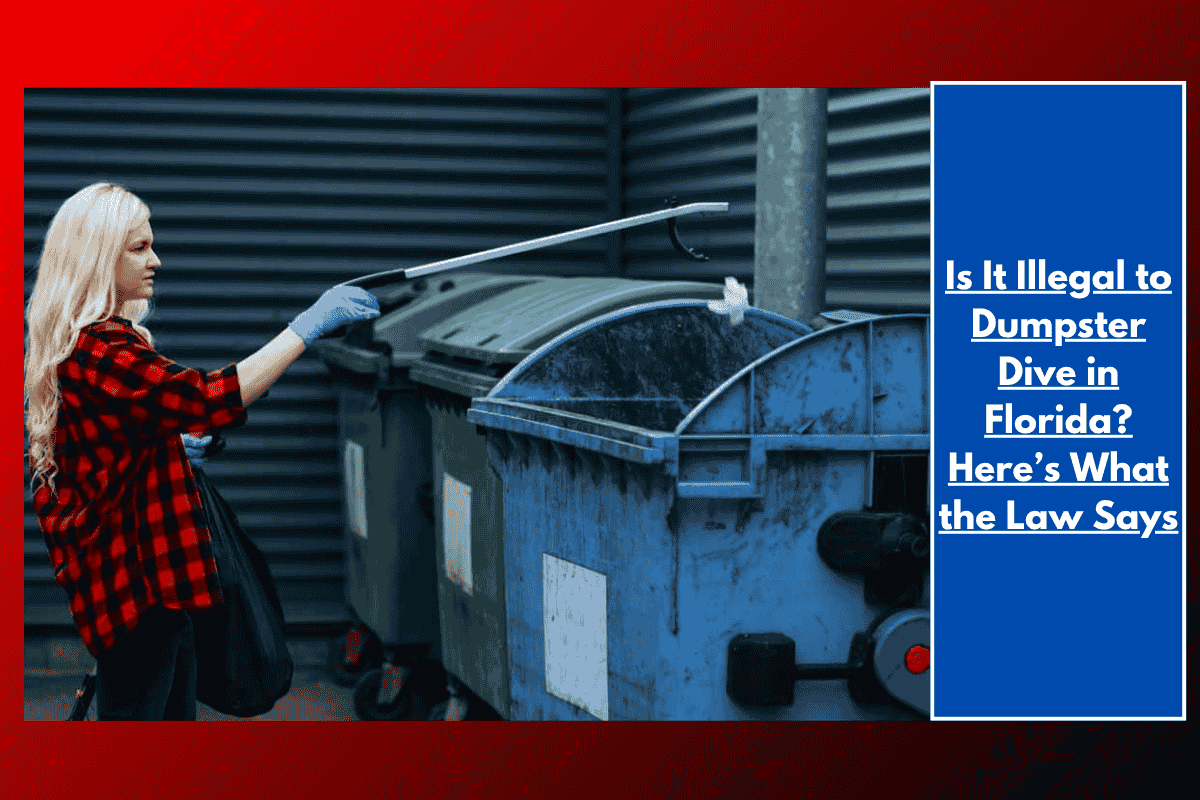Dumpster diving is a common activity for those looking to find discarded items that can still be useful. But is it illegal to dumpster dive in Florida? While it’s not outright illegal, several laws and local ordinances make this activity more complicated than it might seem. Here’s what you need to know.
Public vs. Private Property
Public Property: If a dumpster is placed on public property, it’s generally considered abandoned, and you may have the right to take the items. However, you still need to be aware of any local ordinances that may restrict dumpster diving in certain areas. For example, some cities might have specific rules against taking items from public dumpsters to prevent clutter or health hazards.
Private Property: Dumpster diving becomes illegal when you’re on private property without permission. Florida law considers unauthorized entry onto private property as trespassing. So, if you’re diving in a dumpster behind a business or in a private parking lot, you’re likely trespassing, which can result in a criminal charge under Florida’s trespassing laws.
Local Ordinances and City Laws
Different counties and cities in Florida can create their own laws regarding dumpster diving. In places like Palm Beach County, for example, waste placed by a homeowner is considered the property of the local government, making it illegal to remove items without permission.
Some municipalities may have specific “No Dumping” or “No Trespassing” signs near dumpsters, and ignoring these could lead to fines. Always check your local regulations to avoid violating any rules.
Trespassing and Signage
If there are “No Trespassing” signs or any indication that access to a dumpster is restricted, entering that property to dumpster dive could lead to legal consequences, including fines or arrest.
Many businesses also secure their dumpsters with locks to prevent unauthorized access.
Risks of Dumpster Diving in Florida
Legal Risks: Unauthorized dumpster diving can lead to fines, criminal trespassing charges, and even arrest in some cases, especially if you’re found on private property or violating local ordinances.
Safety Hazards: Dumpster diving can be dangerous. Dumpsters may contain hazardous materials, sharp objects, or spoiled food that could result in injury or illness.
Health Concerns: There is a risk of exposure to germs, bacteria, and other harmful substances, particularly if you’re handling discarded food items or improperly discarded waste.
Best Practices for Dumpster Diving in Florida
To minimize legal and safety risks, consider these tips:
Get Permission: Always ask for permission from property owners or businesses before dumpster diving.
Check Local Laws: Before diving into a dumpster, make sure you’re familiar with local ordinances that may restrict this activity in your area.
Stay Safe: Wear gloves and other protective gear when diving, and avoid risky items like food or materials that could be contaminated.
Respect Private Property: Never dive in dumpsters behind businesses or in private areas unless you have express permission to do so.
In Florida, dumpster diving isn’t automatically illegal, but it’s important to be aware of the local laws, property rights, and safety risks involved. Make sure you’re not trespassing on private property, and always check local ordinances to avoid potential fines or legal trouble.
SOURCES
[1] https://sirixmonitoring.com/blog/is-dumpster-diving-illegal-in-florida/
[2] https://byoc.pct.edu/dumpster-diving-laws-in-florida
[3] https://www.theenvironmentalblog.org/2025/04/is-dumpster-diving-legal/
[4] https://snipe-it.stanford.edu/is-dumpster-diving-legal-in-florida
[5] https://www.youtube.com/watch?v=vOKjmIE0Csw














